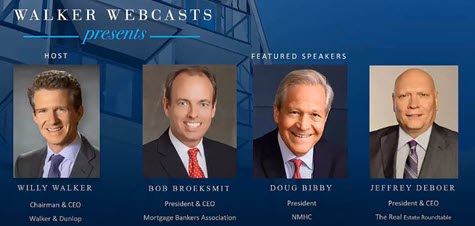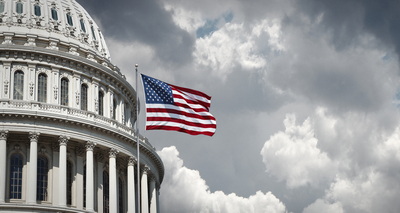US and UK regulators are urging banks using the London Interbank Offered Rate (LIBOR) as a benchmark interest rate to stop writing new LIBOR contracts by the end of 2021, while most legacy contracts will be able to mature before use of the rate sunsets in June 2023. (Federal Reserve and Wall Street Journal, Nov. 30)
- The UK-based ICE Benchmark Administration (IBA) announced it will consult in early December on its intention to cease US$ LIBOR. IBA intends to eliminate, subject to confirmation, one week and two month US$ LIBOR settings at the end of 2021. (Financial Conduct Authority, Dec. 4)
- LIBOR is used as a reference rate in an estimated $200 trillion of financial contracts, including $1.3 trillion of commercial real estate loans. UK financial authorities are phasing out LIBOR in response to manipulation concerns.
- The Federal Reserve Board, Office of the Comptroller of the Currency, and the Federal Deposit Insurance Corporation on Nov. 30 released a joint statement supporting the proposal and explaining that the June 30, 2023 proposed LIBOR cessation date would allow time for “legacy contracts”—USD LIBOR transactions executed before January 1, 2022—to mature.
- The joint statement also notes, “Failure to prepare for disruptions to USD LIBOR, including operating with insufficiently robust fallback language, could undermine financial stability and banks’ safety and soundness.”
- Federal Reserve Vice Chair for Supervision Randal K. Quarles on Nov. 30 said, “Today’s plan ensures that the transition away from LIBOR will be orderly and fair for everyone—market participants, businesses, and consumers.”
- “These announcements represent critical steps in the effort to facilitate an orderly wind-down of USD LIBOR,” said John Williams, President of the Federal Reserve Bank of New York and Co-Chair of the Financial Stability Board’s Official Sector Steering Group. “They propose a clear picture of the future, to help support transition planning over the next year and beyond.”
- The Fed has urged banks to prepare for a transition away from LIBOR to the Secured Overnight Financing Rate, which will use rates that investors offer for bank securities such as loans and assets backed by bonds, instead of relying on bank quotes.
The US Treasury Department on October 9, 2019 released proposed regulations to clarify the tax consequences of replacing LIBOR in existing financial contracts, including real estate loans. The proposed rules largely align with Roundtable recommendations submitted in June 2019. (Roundtable Weekly, June 7, 2019)
# # #













